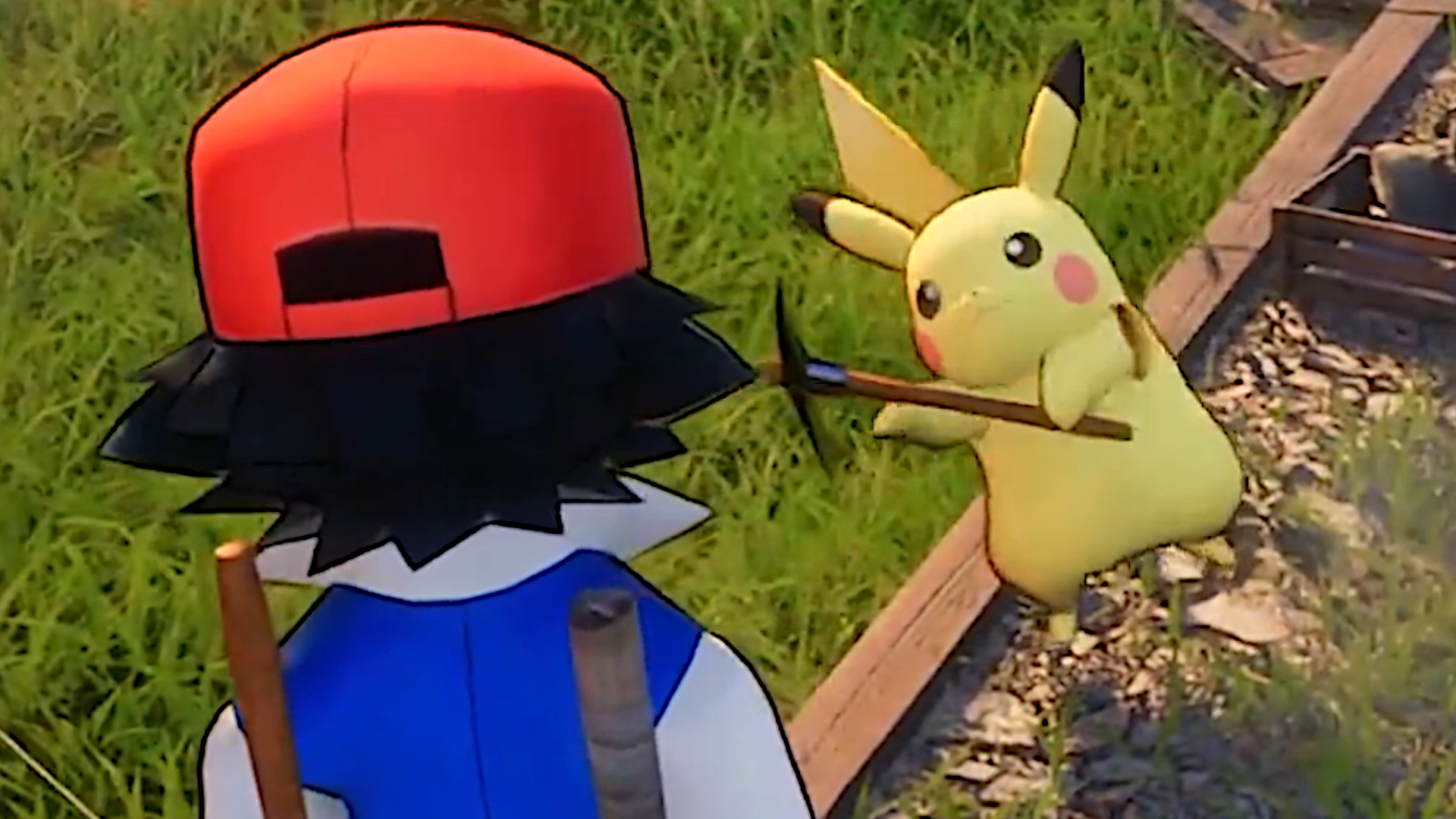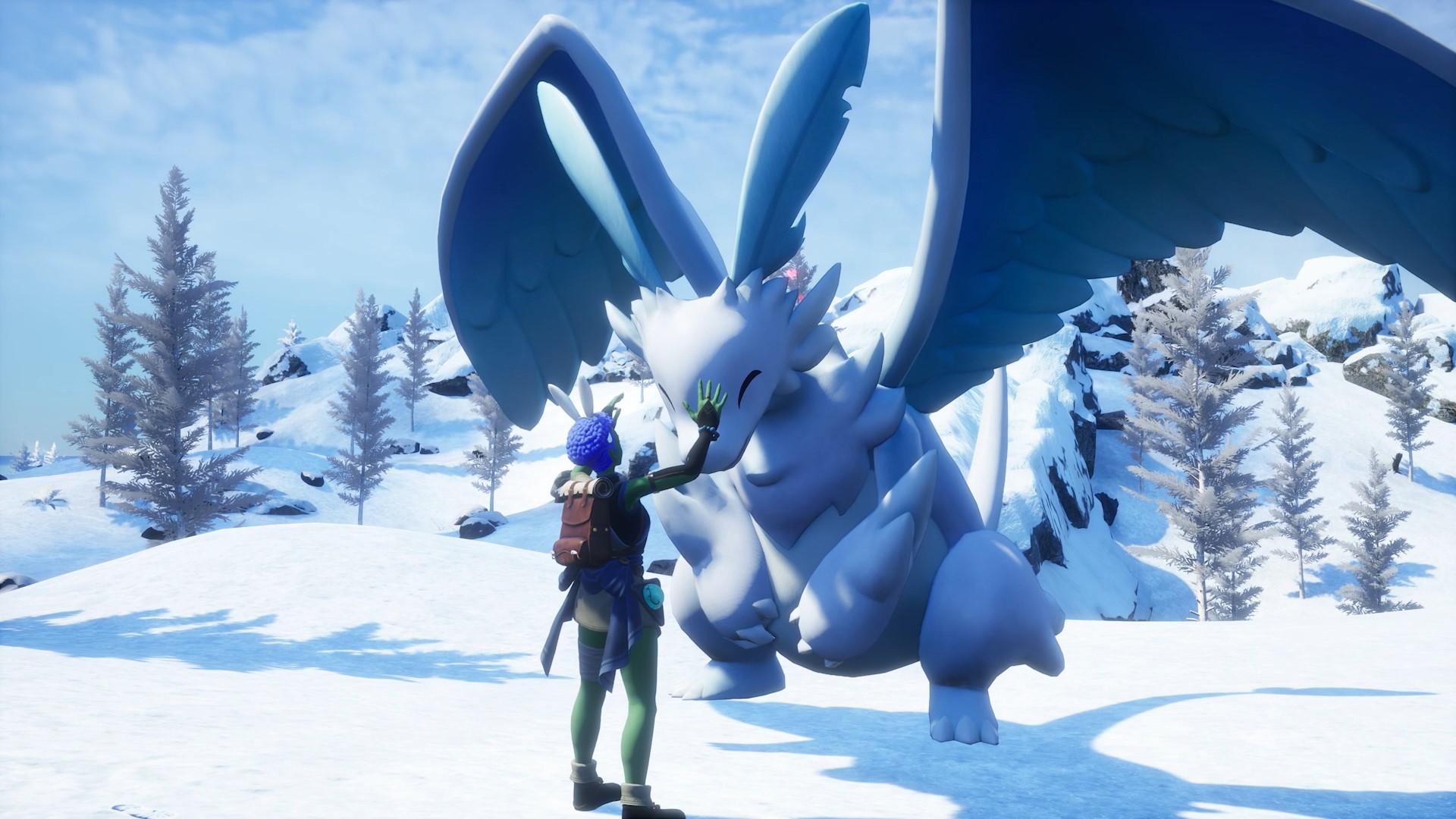Palworld is 2024's first breakout hit. Why is it so popular?
2024's first viral hit has been building for years: also Pokémon.

Like all overnight successes, Palworld's sudden emergence as 2024's first bona-fide viral hit has a much longer history. If you're wondering why this slightly jank Pokémon-aping survival sim suddenly took over every feed going, in the process racing to 7 million sales and counting, then the answer has a ton of elements to it: though maybe the "Pokémon with guns" tagline is a good place to begin.
Palworld was first announced in 2021 with a frankly absurd trailer that at the time went viral: and it was this trailer that first led to the game being dubbed "Pokémon with guns." So far, so internet-typical: the pitch was wild, everyone had a laugh at the trailer's more ridiculous elements, and then we moved onto the next thing.
Palworld had done enough, however, to get on many radars and earn plenty of Steam wishlists. The Pokémon thing is perhaps worth pausing over. Are Palworld's designs derivative and inferior? Sure. Do they infringe? That's up to the courts, but it's open enough that the game's still on sale. And the subverting of Pokémon is and has been at the core of this game's viral appeal since the start.
I mean, god love Pokémon, but Pokémon games are for children. IRL there's a whole audience of adults who grew up on Pokémon and now have adult senses of humour that Game Freak is never going to satisfy. Pikachu may basically be your indentured slave animal in Pokémon, but Palworld leans into those systems and in doing so subverts the most immaculately maintained and valuable games brand in the world: GTA may sell like gangbusters, but it is truly nothing next to Pokémon.
What I'm saying is that players seem to actually like walking up to a cute animal, beating it into subservience, and rocking on to the next one. But there's more to Palworld's success than its appeal to adult's desire for an edgy parody, and the thing is…
It's actually good
One of the biggest factors in Palworld's success, and one that it doesn't get enough credit for, is that it's a systems-driven survival game with a whole lot of fun jank in the interactions. I'm not saying this is a masterpiece but it is fundamentally a systems-driven game where half the joy is the surprising interactions it serves up.
After 45 minutes you'll be running around with some sort of albino chipmunk thing sitting on your head firing a machinegun while you whack a bunch of penguins down at workbenches to build what you need. And this is all pretty much freeform: for all the Pokémon with guns tagline, this is much more like Rust or Valheim with Pokémon thrown in. And these kind of clips are why TikTok registers around 400 million views for Palworld content: and remember, that's just the stuff tagged as such.
Keep up to date with the most important stories and the best deals, as picked by the PC Gamer team.
Palworld's a survival game, and arguably simpler than many other examples, but the Pals themselves are what makes the difference. There's the initial amusement at bludgeoning a harmless-seeming sheep then capturing it and setting it down to some hard labour, then later comes the realisation that you can basically have an automated army doing all the genre's busywork while simultaneously helping you rinse things on the battlefield.
Influence or organic?
Palworld sent out early access keys to streamers and influencers, but every new game does. The fact it got hyped up by that crowd is down to the game's elevator pitch and the surprising ways it delivers it: this is a game built for 15-20-second clips of bizarre behaviour, and on TikTok especially Palworld went global.
There will inevitably be suspicions about whether this kind of virality is truly ground-up, or the work of some anodyne yet high-priced marketing firm. Palworld just doesn't seem in that category, and perhaps it's worth taking a step back from our usual cynicism about trends and virality. Lots of stuff achieves that goal in a very targeted manner; others have it thrust upon them.
So it is with Palworld, I feel anyway. It already had several moments of popularity before actually releasing, and at that point the combination of one of the biggest IPs in the world and the glorious clips of its systems-driven nonsense sent things into the stratosphere.

Best Pals: What to catch early
Palworld roadmap: The early access plan
Palworld mods: Best tweaks to install
Palworld multiplayer: How to co-op
Palworld dedicated server: Full-time Pals
Palworld breeding guide: Get started with cake and eggs
Japanese game studio Pocket Pair is struggling to cope with the game's success, which is hardly surprising: every big boss at a major publisher is looking on this with envy, and thinking about how many offbeat ideas they've killed.
Palworld has broken records for downloads, streams, popularity on Steam, and has sold seven million and counting in the first week. The devs just issued the first roadmap and the message is "hold on tight."
I don't think Palworld's a 10/10 game in the slightest, but the sheer fun of it with friends and the surprising interactions it throws up are why this is not just an overnight success, but a game that will be a temporary phenomenon. Will anyone be playing it in six months? Sure, but nothing like now. For the moment though, its blend of streamlined survival fundamentals and a taboo treatment of a familiar subject has proven intoxicating for a wide and almost entirely PC-based audience.

Rich is a games journalist with 15 years' experience, beginning his career on Edge magazine before working for a wide range of outlets, including Ars Technica, Eurogamer, GamesRadar+, Gamespot, the Guardian, IGN, the New Statesman, Polygon, and Vice. He was the editor of Kotaku UK, the UK arm of Kotaku, for three years before joining PC Gamer. He is the author of a Brief History of Video Games, a full history of the medium, which the Midwest Book Review described as "[a] must-read for serious minded game historians and curious video game connoisseurs alike."

